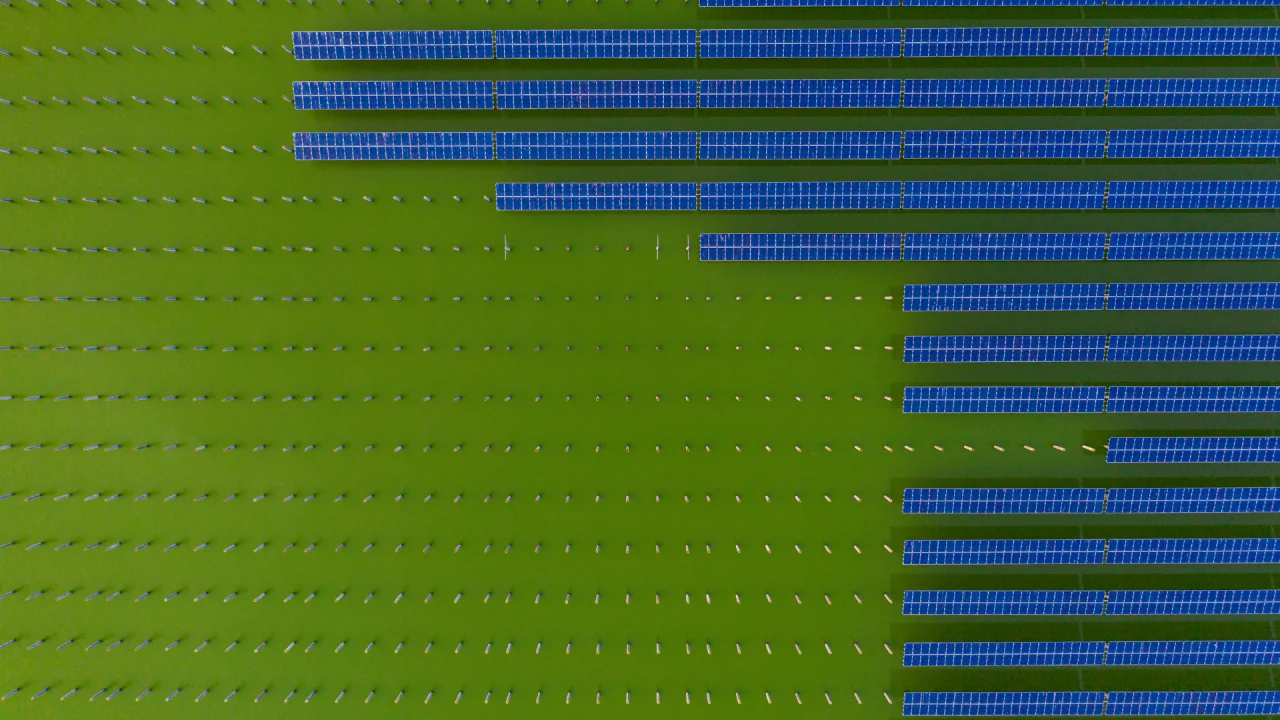A vision for America’s agricultural future

As I reflect on my personal health journey, it’s hard not to draw a straight line from the food I ate growing up to where I am today. Food has always been central to my wellbeing. But it wasn’t until I became an adult, and sick with a disease that went undiagnosed for many months, that I fully grasped the power of food to either nourish or harm. During that extremely difficult period in my life, trapped in a cycle of inconclusive tests and debilitating symptoms, I came to understand food as medicine and realized that the way our food is grown impacts not just our bodies, but also the ecosystems that sustain us.
As the CEO of Rodale Institute, I believe now more than ever that soil health is human health. The land is a living, breathing organism that must be fed and cared for, just like us. When we feed the land, it feeds us. Although Rodale Institute is 78 years old and the birthplace of the modern organic movement, we maintain a start-up mentality: ambitious, forward-thinking, and focused on accelerating regenerative organic agriculture across the country. We’ve set a bold goal to transition one million acres of farmland to regenerative organic by 2035. Why? Because how we grow food is deeply connected to rising rates of chronic illnesses like cancer, heart disease, and diabetes. It’s time to make a change.
Damage the soil, damage ourselves
The current state of industrial agriculture in America is alarming. This system prioritizes high yields, chemical inputs, and monocropping at the expense of human and environmental health. Modern farming depends on synthetic pesticides, herbicides, and fertilizers, many of which have been linked to serious health concerns. Studies show people exposed to these chemicals, whether through agricultural work or food consumption, face higher risks of cancer, neurological disorders, and other illnesses. This is not a theoretical concern, it’s a public health crisis. Exposure to synthetic pesticides has been linked to increased rates of leukemia, non-Hodgkin’s lymphoma, and prostate cancer.
These chemicals may boost short-term yields, but they degrade our soil, kill beneficial microorganisms, and upset the natural balance of ecosystems. When we damage the soil, we damage our food and ourselves. Many of these chemicals also seep into waterways, polluting communities far beyond the farm.
A better way forward
But there is a better way forward: regenerative organic agriculture. This holistic approach prioritizes soil health, biodiversity, and ecosystem restoration. Unlike conventional farming, regenerative organic methods avoid synthetic chemicals and instead build the natural fertility and resilience of the land. It starts with soil, rebuilding soil health through techniques like crop rotation, cover cropping, and composting. These methods increase organic matter in the soil, which helps it store carbon, retain water, and support microbial life. Healthy soil produces nutrient-dense crops, which nourish the animals and people who consume them.
The benefits go beyond soil. Regenerative organic farms foster biodiversity, protect pollinators, and restore natural habitats. This isn’t just about growing food, it’s about restoring balance to our environment and improving public health.
There’s a direct link between food and health. When we eat food grown with synthetic chemicals, we ingest substances that can contribute to chronic disease. But when we eat food grown in healthy, organic soil, we’re fueling our bodies with the vitamins, minerals, and antioxidants they need to thrive. In this way, food becomes medicine.
I’ve seen this firsthand. Since changing my diet to organic foods, my energy, health, and well-being have dramatically improved. That mysterious illness? It was resolved with dietary and lifestyle changes. I farmed my body back to health. And I’m not alone. Millions of Americans suffer from chronic diseases that may be linked to our food system. The evidence is clear. Our farming practices must change if we want to improve soil health and human health.
Yet there’s a major hurdle: Less than 1% of U.S. farmland is USDA-certified organic, even though consumer demand for organic food is growing rapidly. Transitioning to regenerative organic farming requires commitment, training, and investment, but it’s an effort we can’t afford to delay.
The benefits are clear, regenerative organic farming restores our soil, improves health outcomes, and protects our environment for future generations. But we need more than a few dedicated farmers to make this vision a reality. We need widespread adoption, public investment, and strong policy support. Farmers, policymakers, and consumers must come together to build a food system that prioritizes health, sustainability, and resilience.
The current food system is broken, but we can fix it. By supporting regenerative organic agriculture, we ensure that our food nourishes our bodies and sustains the land. At Rodale Institute, the farm continues to teach us about reciprocity, nourishment, and connection. We are all stewards of the land and the food that we eat from it. It’s time for America to make the transition to a healthier, more regenerative food system—for our health and our future.
Jeff Tkach is CEO of Rodale Institute.
What's Your Reaction?
 Like
0
Like
0
 Dislike
0
Dislike
0
 Love
0
Love
0
 Funny
0
Funny
0
 Angry
0
Angry
0
 Sad
0
Sad
0
 Wow
0
Wow
0

























































![Ironheart Boss on Episode 3’s [Spoiler] Reveal: ‘It’s So Much Fun to Reach Back’ in MCU History — Grade It!](https://tvline.com/wp-content/uploads/2025/06/ironheart.png?#)






































